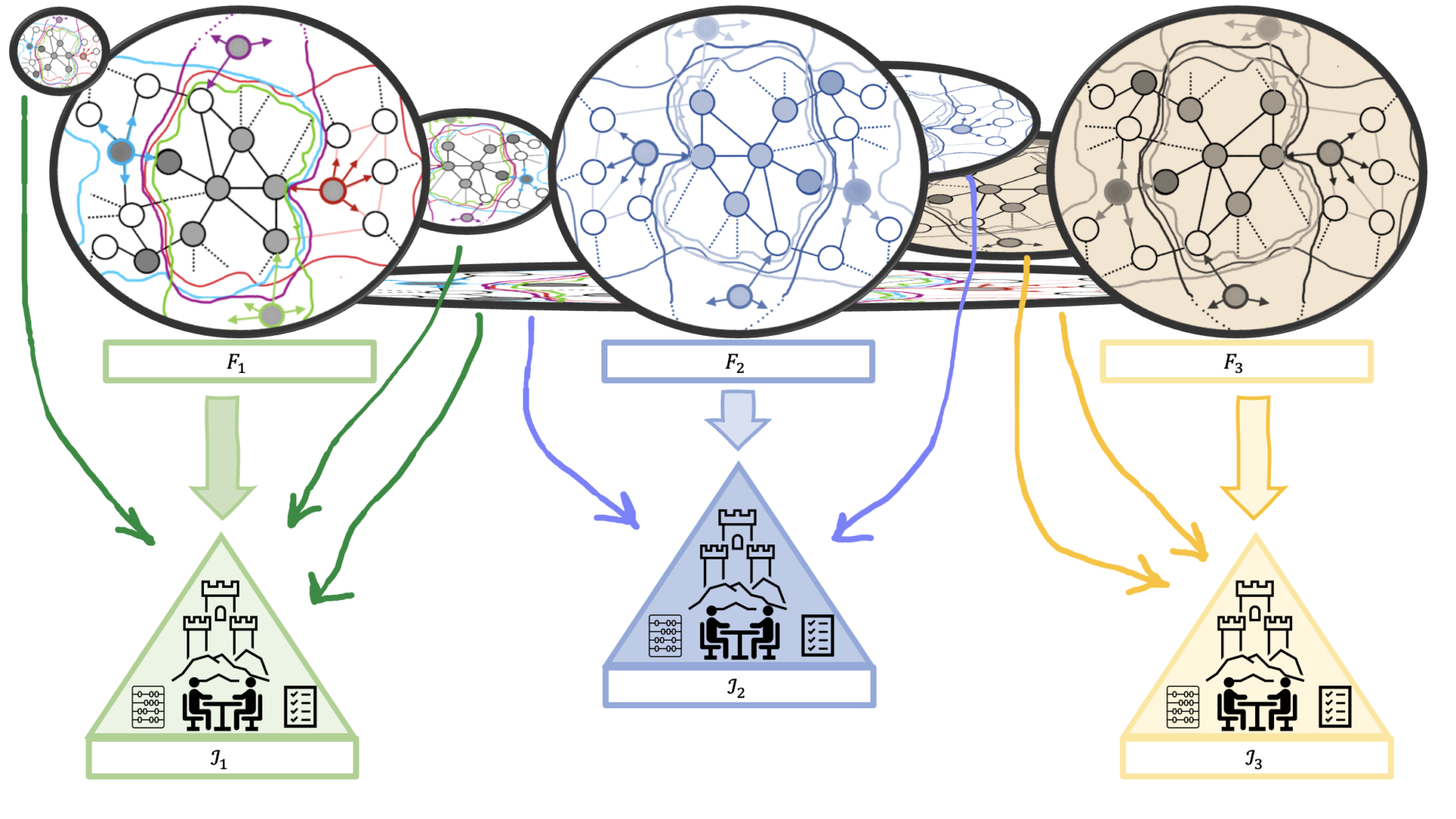The Complexity Economics Workshop aims to develop an “inside-out” complexity economics – that is, one where the economist recognizes himself as standing inside the system he’s studying.
Unlike both mainstream economics and traditional complex systems theory, an Inside Out Complexity Economics takes seriously:
- Epistemological constraints on economic actors
- The embeddedness of interventions within a system
- The entangledness and network structure of institutions across domains
- The open-ended evolutionary nature of the economy
- The incompleteness of formal rule systems – including the modeler’s
Such a complexity economics is uniquely poised to explain – for example – the effects of supply chain disruptions, cultural and institutional diffusion and transitions, process-level social entrepreneurship in the supply of public goods, the unexpected secondary and tertiary consequences of economic policies, the consequences of the accelerating growth of the technosphere, and the emergence and evolution of increasingly volatile informational landscapes.
Mission and Research Program
Seeing one’s self inside the system of study demands, first of all, humility. The scholars of the CEW are driven to understand, explain and illuminate self-organized, spontaneously ordered, and open-ended social processes. Our goal is not necessarily to intervene upon or improve these systems. Policy-making is an institutionally entangled, epistemologically and computationally constrained process that emanates from within the same complex social system it attempts to alter.
We take a neutral approach with respect to the social effects of open-ended emergence, as open-ended emergence exhibits both socially “positive” and “negative” tendencies. The definition of positive and negative itself regarding social outcomes implies a theoretically questionable measurability of a complex possibility space. Similarly, we take a neutral approach with respect to the social effects of interventions into this system, interested primarily in how institutional entanglements, epistemological constraints and nonlinear feedback effects of intervening upon a complex social system can throw social designs off course. For example, we contrast our design-skeptical approach with the attempt to integrate optimization methods with complex systems science[1] [2].
While our research program has many influences, our fellows are influenced in particular by Henri Bergson, Bruno Latour, Frank Knight, Kurt Gödel, Emil Post, Joseph Schumpeter, F. A. Hayek, Herbert Simon, Vernon Smith, Ludwig Lachmann, G. L. S. Shackle, Stuart Kauffman, Elinor Ostrom, Warren Weaver, Bernard Mandeville, Kenneth Boulding, and other systems-aware thinkers.
Many of our senior and research fellows have already spent decades developing original bottom-up, spontaneously ordered and epistemologically aware research. The CEW is intended to encourage the development of more original research, collaboration between members, and mutual education of members and especially student fellows in complexity economics.
[1] Mount, K. R., & Reiter, S. (2002). Computation and Complexity in Economic Behavior and Organization. Cambridge University Press.
[2] Room, G. (2011). Complexity, institutions and public policy: Agile decision-making in a turbulent world. Edward Elgar Publishing.
Interested in the Complexity Economics Workshop?
Please email information at complexityeconomists dot com for more information.

